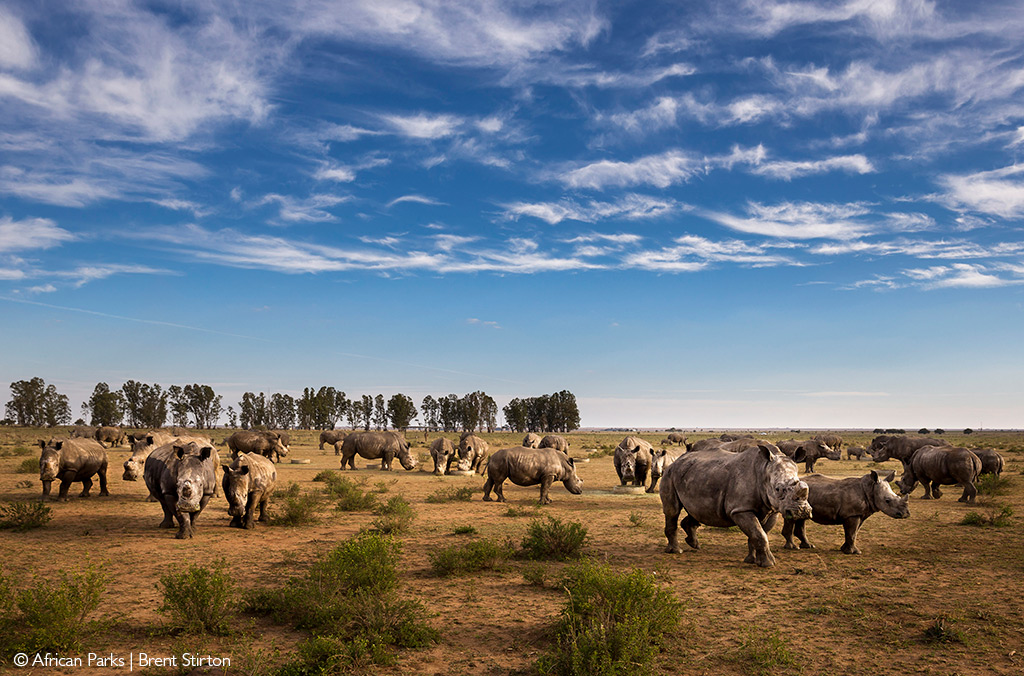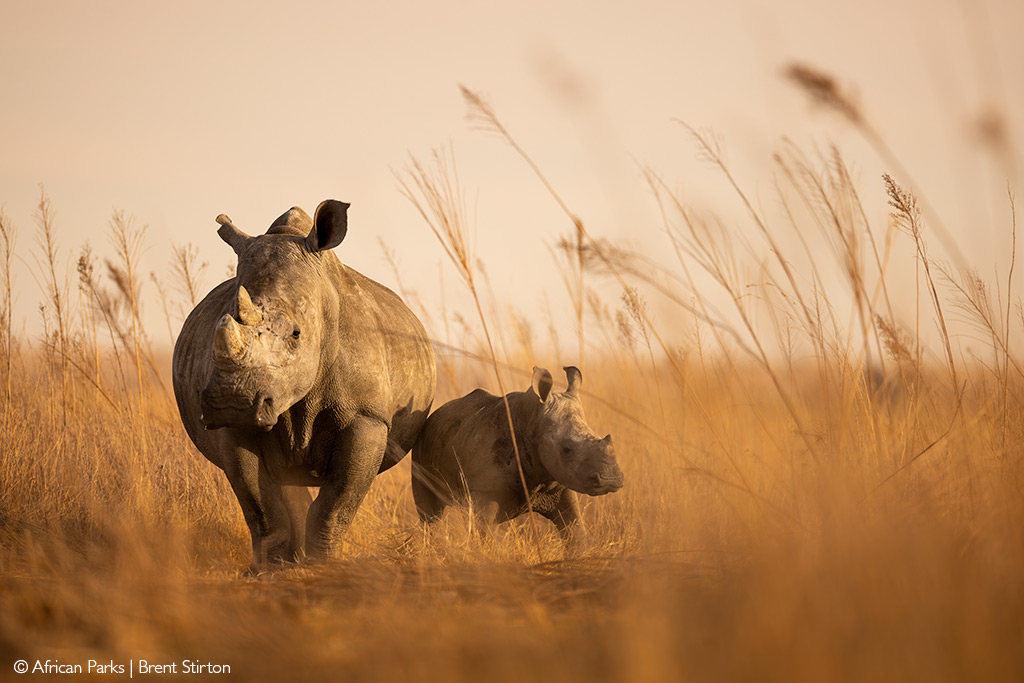
African Parks has just purchased the world’s largest rhino breeding operation – John Hume’s Platinum Rhino – to rescue and rewild the 2,000 southern white rhinos that, up until now, faced an uncertain future.
African Parks announced it would rewild the rhino over the next ten years to well-managed, secure protected areas across Africa. By establishing new populations and supplementing strategic populations, this move will significantly boost the future prospects of the species.
Rhino breeder Hume, who has been on the verge of bankruptcy for the past few years, made headlines earlier this year when he once again placed Platinum Rhino up for auction. The auction received no bids, putting these rhinos at risk of poaching and fragmentation. The 7,800-hectare captive-breeding rhino project, operating in the North West province of South Africa, has reportedly been tallying up a cost of $9,800 a day – an amount that Hume could no longer afford to pay.
After being approached by concerned members of the conservation fraternity about the potential crisis that awaited these rhinos, African Parks conducted due diligence and secured funding for the transaction. With the support of the South African government, African Parks agreed to purchase the farm and its rhinos.
The 2,000 rhinos represent up to 15% of the world’s remaining wild southern white rhino population (at less than 13,000 individuals), which is currently under extreme pressure due to poaching.
African Parks has extensive experience managing protected areas and conducting large-scale wildlife translocations. Over the years, the conservation NGO has brought rhinos back to Rwanda, Malawi and the Democratic Republic of Congo.

African Parks will phase out Platinum Rhino’s breeding programme, rewild the rhinos and bring the project to an end once all rewilding has occurred.
“African Parks had no intention of being the owner of a captive rhino breeding operation with 2,000 rhinos. However, we fully recognise the moral imperative of finding a solution for these animals so that they can once again play their integral role in fully functioning ecosystems,” said Peter Fearnhead, CEO of African Parks.
The South African government pledged support for the cause. Barbara Creecy, South African Minister of Forestry, Fisheries and Environment, said the government is “ready to support African Parks and other partners with technical and scientific advice in developing a conservation solution that includes translocating the animals over a period of time to suitable parks and community conservancies in South Africa and on the African continent.”
Further reading
Read more about the importance of private sector rhino conservation.
Read about the state of Africa’s rhino.
To comment on this story: Login (or sign up) to our app here - it's a troll-free safe place 🙂.![]()






